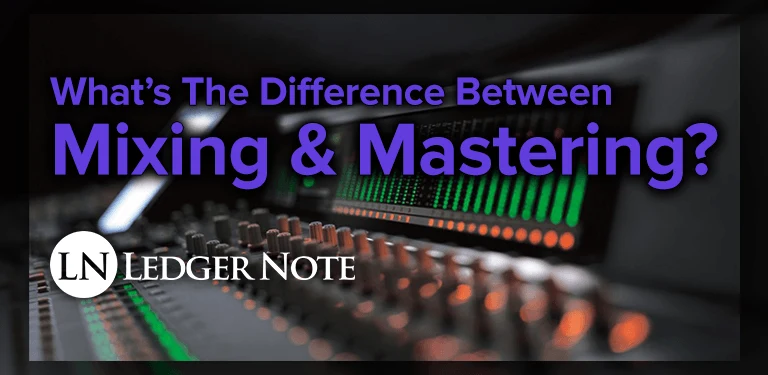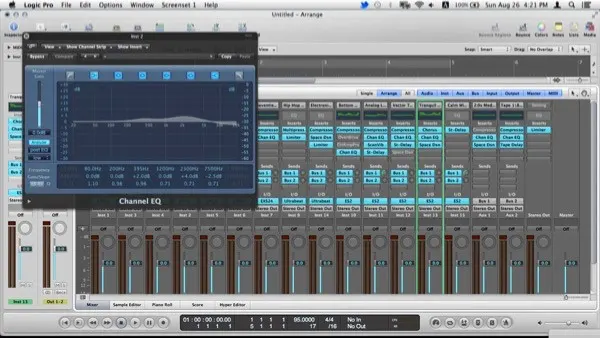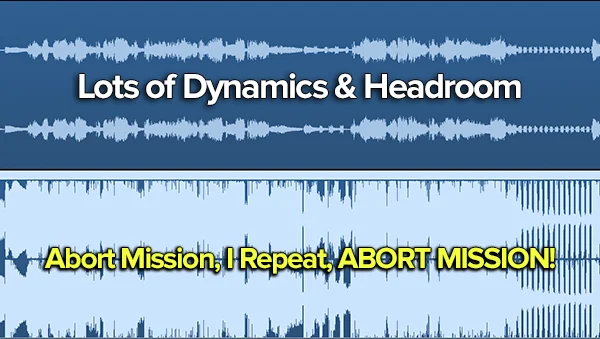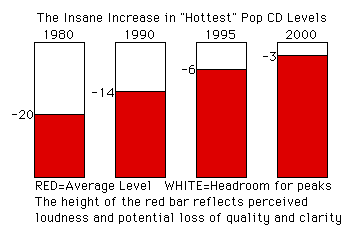
We’ve all heard the difference between an amateur recording captured in your buddy’s garage and a professional recording tracked in a recording studio equipped with all of the best gear available. But that only affects the clarity of the song in general.
Those differences in recording environments and access to gear is like the difference between working with a puzzle where the pieces were cut out by a computer with a laser versus a hyperactive 3rd grader and a pair of scissors. Mixing is the act of putting the puzzle pieces together to form the actual desired picture.
Mixing engineers can take a horrible set of tracks and ‘re-cut the pieces’ so they fit together better. But fitting them together is the act of mixing, which leads all the way up to the puzzle being fully completed and laid out on the table in all of its glory.
So where does that leave room for the process of mastering? Mastering comes after mixing is completed.
To continue with the puzzle analogy, mastering is like carefully flipping the puzzle over and gluing on a piece of cardboard so you can frame it behind glass and hang it on the wall. Mastering is the final polish that makes the puzzle ready for presentation.
That gives you the general idea of what we’re going to talk about today, but below we’re going to dig into the specifics of mixing and mastering so we can understand what techniques and goals are involved in each stage.
Before we start comparing and contrasting these two activities, let’s look at what each one is in isolation.
What’s The Difference Between Mixing & Mastering For Your Music?
As we mentioned above, the better of a job of recording you do, the easier a time you’ll have with mixing. And the better of a job you do with mixing, the easier a time you’ll have with mastering. That’s because they occur in that sequence and build on the progress of the previous step.
A mixing or mastering engineer can only do so much to salvage a disaster. The reason for this will become clear as we continue with the discusion.
Mixing: Creating Cohesion Amongst Layers
What is Mixing? – Mixing is the act of making individual recordings sound good together when played in unison. This includes balancing levels, panning instrument positions in the stereo field, equalizing and compressing each track, and adding in effects like reverb and delay.
Once you’re done mixing by doing things like making sure the bass guitar and the kick drum aren’t interfering with each other and making sure the guitar isn’t overpowering the vocals in volume and in the frequency spectrum, you’ll move on to the next step.
Mastering: Optimizing the Overall Sound
What is Mastering? – Mastering is the act of controlling the overall dynamics of a song while accentuating pleasing elements and hiding displeasing ones. This includes the same activities performed on every song in an album so that they sound like they belong together, in frequency characteristics and volume.
Once mastering is completed, each song sounds great in isolation, competing in volume, clarity, and warmth with other songs on the market, and sounds great as a package with the other songs in the album. Mastering provides a unifying feel in frequency response and volume across an entire record.
Mixing & Mastering Example Walkthrough
Let’s create a quick scenario of the process that a mix engineer will take before passing a song off to the mastering engineer. It’s generally suggested that a separate engineer perform each step, rather than one doing both, because it’s easy to lose perspective and become ‘too close’ to a song.

The recording engineer will have helped capture the sounds into individual tracks using microphones, MIDI data, and direct inputs into a mixer or audio interface. The mixing engineer then steps in. He or she will first begin by cleaning up noises manually using automation or noise gates.
Next, balancing levels while mixing in mono so that each instrument is at the right volume in relation to each other is performed, then we follow it up with panning and some volume compensation done on the hard panned tracks.
Next, each track will have equalization applied in solo mode as well as a whole so that each is clear and intelligible at their respective volumes in relation to one another. Once clarity is achieved, compression is applied to ensure the dynamic range of each track doesn’t vary too much.
You don’t want the listener needing to reach for the volume knob on their car stereo or headphones, so you provide consistency in the overall amplitude this way.
Finally, the mixing engineer will apply effects like reverb, delay, and other bits of ‘ear candy,’ and will EQ those as well so they don’t interfere with the established clarity.
At this point, the mixing is done and the song will be bounced as a single track together, or possibly in stems where the drums will be grouped, for instance. Then the mastering engineer steps in.
Because the mixing engineer practiced good gain staging and left plenty of headroom to work with, the mastering engineer can produce a great final product.
This person will make great use of parametric equalizers and multi-band compressors to massage the volumes of various frequency ranges until each has a proper representation and the overall volume variances are contained even more. Finally, the song is normalized so that the average volume is boosted drastically.

The last step the mastering engineer applies is crossfades between songs on an album, or fade outs and fade ins, and when rendering the final files they will make sure the proper metadata is added. This makes sure the radio in your car displays the name of the song and artist and iTunes and Spotify, for example, can display the album artwork, release date, and other info.
The Loudness Wars: The Difference Between Old & New Mixing & Mastering
An interesting topic you should be aware of is that of The Loudness Wars. Big label companies, in their quest to always squeeze another nickel out of a product, realized that the regulations surrounding volume in television, film, and radio were based on peak amplitude.
But humans perceive volume based on the average (actually the root-mean-square) amplitude. So by compressing audio to an absurd degree, they could make sure no peak crossed the regulated threshold and could bring the average volume up to a very high level.

The idea was that the louder the commercial, the more chance you had of grabbing the audiences attention. This is why we always reached for the remote control to mute commercials on the TV, because they were as much as twice as loud as the program that was playing.
The same goes for the radio. But this war for loudness crossed over from commercials and began to creep into pop music and out from there, where every track is compressed so hard that there is barely any dynamics preserved, which only serves to suck any emotionality out of the songs.
Why is this stupid? Because it achieves the opposite effect. Instead of getting our attention, we refuse to pay attention to commercials at all because they’re so intrusive and invasive.
When it comes to music, if every song is equally loud then all we need to do is turn the overall volume down on the speakers and now every song is equally less loud. All that’s happening is we’re losing dynamics out of music. Earl Vickers has shown without a doubt that loudness doesn’t boost sales.
It’s been pointed out that Justin Bieber’s records are now louder than Motorhead’s, AC/DC’s, and those of other metal acts!

It’s honestly gotten so bad that I run my audio output from my interface through a compressor on a patchbay when watching movies, and unplug it for music, because I can barely hear what’s being said in some scenes and then the action scenes are so loud you have to reach for the volume knob.
I bring this up because you may one day hire someone to perform mixing and mastering for you. If you request for them to not compete in the loudness wars, like other huge artists like Elbow have done, they’ll likely shed a tear of joy.
I wouldn’t stray too far from the trend and sound like an old classical record, but I’d allow them to ease off just a tiny bit.
Difference Between DIY & Pro Mixing & Mastering
The age old question that comes after looking online at the costs of having a professional mix or master your record is “Can I learn to do this myself?”
The answer is yes, but the question becomes “should you?”
I personally love mixing and have written all of the mixing articles on LedgerNote. But the problem becomes that every time I’m mixing my songs, that’s that much time I’m spending on something other than writing and recording my next song.
As an artist, you have to decide how narrow you want your focus to be for the sake of not being distracted. Another general reason is that you simply can’t be impartial, which leads us into the first question:
Should I Mix My Own Music?
Like most things, you should try them out because it’s fun and interesting, but mainly because if you have zero clue of what is involved with a task, how can you tell if the person you hire is doing a good job or not?
You can give it a shot with free plugins that come included in your digital audio workstation like Logic Pro or Pro Tools without spending any money. If you need one, check out our list for the best DAW for your needs, one of which is now free (Cakewalk).
Being comfortable with the methodology and terminology will also help you communicate with your mix engineer so you can both be aiming at the same target.
Now, should you become your own mixer forever? You can if you have the patience and tolerance for it. It can save you a good chunk of cash if you’re actually good, too. But there is the problem. You may produce the best mixes on the planet when it comes to other people’s music and get it done relatively quickly.
But when it comes to your own songs, you lose perspective and keep tweaking knobs for hours on end until you can’t even tell what’s going on any more. It’s easy to suffer ear fatigue and not make the right shots because you don’t have enough distance from your own songs.

Another thing to consider, and this goes for mastering as well, is that its like learning any other skill such as playing the guitar or piano. It will take a lot of time and effort to become good and even more to become great. Is it worth the time investment?
Also, although you can do a lot of this work in-the-box with plugins, you won’t want to and it won’t really make sense with mastering anyways. Is it worth the massive money investment to mix and master outside-the-box with analog gear?
It will cost you as much as having several records polished by someone else and you still have to do the work.
Should I Master My Own Music?
I’m going to flat out answer ‘No.’ You should not master your own music. That’s not the same question as “should I learn how to master a song in general?” which you may enjoy doing.
Like anything, knowing what’s involved is good, but taking the journey should be saved for those who have mastered the previous steps and have a passion to dive deeper.
But regarding your own music, you should let someone else handle that even if you’re the best mastering engineer to ever exist. The reason is that you won’t have enough mental distance from your own music to make the right decisions.
And while the best mastering improves a song by just a handful of percentage points, the worst mastering can absolutely destroy a song (while you can’t hear it without bias enough to not realize that it’s not awesome like you think it is). Average mastering won’t be doing you any favors either.
The Difference Between Mixing & Mastering Explained!
And that’s the difference between mixing and mastering. Mixing is creating a balance between individual tracks so that they create a cohesive whole, while mastering takes that whole and polishes it so that it’s ready for public presentation.
Both are absolutely vital and neither is more important than the other, but mastering does build on the work that mixing did, just like the end result of a mix depends on how well the recording process was completed. And now you can answer when someone asks you what is the difference between mixing and mastering!